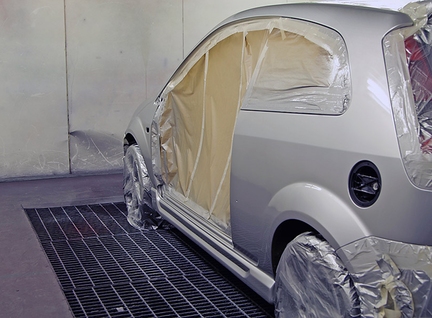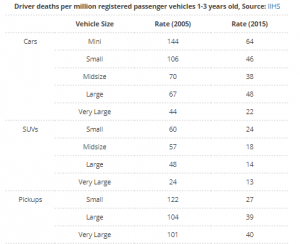Which Vehicle Will Keep You Safe in a Collision?
Car accidents take the lives of over a million people each year, and an additional 30 million plus are injured. In the past, we have talked about how to avoid collisions as well as how to survive them, but a huge part of surviving a car crash isn’t what you do but what kind of protection you have. This makes it extremely important to buy a vehicle that is safe. For years, there has been a debate over which type of vehicle will provide the greatest amount of protection during a crash. Will the results confirm what you already know or surprise you a bit?
It’s All About Science
Even though they are at a higher risk for rollovers, SUVs are considered the safest type of vehicle when it comes to fatalities. Thinking about the science of energy transfer can help you understand why bigger vehicles are naturally safer. Larger objects, because they are heavier, transfer more energy to an object they come in contact with. So when an SUV crashes into a sedan, you can compare it to a baseball bat hitting a ball. This makes SUV drivers five times more likely to walk away from a crash than someone driving a car. They are also more likely to survive a head-on collision.


So does this mean you shouldn’t buy a small car? Not necessarily. Since 2005, smaller SUVs have improved fatality ratings by 60%. Sedans are safer as well. This is because newer cars now have more advanced airbag technology, stronger roof strength for rollovers, and forward collision warning. The following char

As you can see, mini cars have the worst safety rating of all, bringing in more deaths than any other type of vehicle. This is followed by small cars and then large trucks. Large trucks don’t rank well either because the energy of accidents is transferred to the back passengers. This raises fatality rates in these kinds of vehicles.
How Should I choose?
Although safety is of utmost importance, other factors play a role in vehicle purchases. As a single person, it might not make sense to buy a midsize SUV. A family with limited funds may also choose a sedan because it’s what they can afford or it’s fuel efficient. If you can’t afford to buy the safest vehicle, there are some things you can do to increase your chance of surviving a crash. Consider some of the following tips.
- Buy newer, especially if used. Buying a used car is usually a smart financial move. But because older models don’t include many of today’s collision safety features, try to buy a newer vehicle (at least made after 2005.)
- Check the safety rating. If you have to buy a sedan (because of budget or because it makes sense for your family), choose the safest one possible. Google the safety ratings and do your research.
- Focus on safety features. An older SUV that doesn’t have side airbags or other important safety features won’t be safer than a small car with lots of protective structures. Look for a vehicle with emergency communication systems, backup cameras, more airbags, and collision warning systems. These features will increase your chances of surviving a crash regardless of the type of vehicle you drive.
By buying a safe vehicle, you’ll be able to better protect your family in case of an accident. Unfortunately, this doesn’t mean a crash won’t happen. If you find yourself in need of collision repairs after an accident, call 480-418-4737. We’d love to assist you in bringing your vehicle back to safe, like-new standards.

